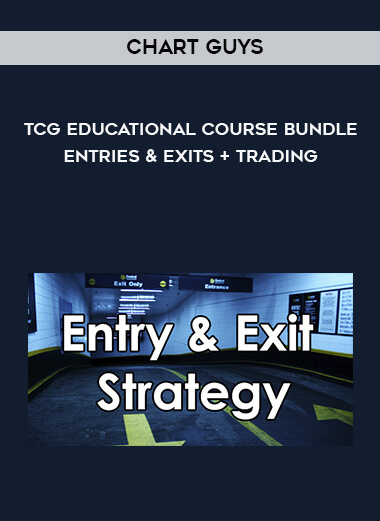
Jason A.Scharfman – Hedge Fund Operational Due Diligence
Salepage : Jason A.Scharfman – Hedge Fund Operational Due Diligence
Archive : Jason A.Scharfman – Hedge Fund Operational Due Diligence Digital Download
Delivery : Digital Download Immediately
Description
How to identify and manage important operational risks in hedge funds
With the multiple crises involving hedge funds, it is more important than ever to analyze both financial and operational risks. Hedge Fund Operational Due Diligence includes real-world examples drawn from the author’s experiences dealing with the operational risks of a global platform of over 80 hedge funds, funds of hedge funds, private equity, and real estate managers, revealing how to effectively detect and evaluate often-overlooked operational risk factors in hedge funds, such as multi-jurisdictional regulatory coordination, organizational nesting, and vaporware.
Section I: Table of Contents
Preface.
What Exactly Is Operational Risk?
A Quick Look Back.
In the context of hedge funds, a modern definition of operational risk.
Operational Risk vs. Operational Due Diligence.
Important Topics.
External dangers.
Internal Threats.
Funding Conditions.
Transparency and accountability.
Risks that are mixed.
The Five Ideas.
The Importance of Operational Due Diligence in Chapter 2.
Why Should Investors Be Concerned With Operational Risk?
Hobson’s Choice Or Morton’s Fork?
Outright deception still exists.
Hedge Fund Fraud Is Impossible to Model.
Small differences add up.
There is a lack of standardized regulation.
Each Hedge Fund Is Unique.
Capability to generate a competitive advantage.
Potential for Lowering Losses and Increasing Returns.
Consideration of operational risk factors provides a unique perspective on a company.
Misconceptions Abound.
Other Considerations: A Positive Correlation Between Assets And Operational Quality Is Not Always Required.
The Bayou Hedge Fund Group is a case study in operational failure.
Broker Dealer Affiliate.
There are significant differences in the performance of onshore and offshore funds.
Broker Dealer’s Capital Is Declining.
Members and actions of the Board of Directors.
Broker-Dealer Expenses are Expensive.
Fake Audits Prepared By A Phony Auditor.
Background Information.
Investor communication is lacking.
Relationships with people barred from the securities industry.
Conflicted Marketing Materials Must Be Revised.
Other Errors.
Who Is Qualified To Conduct An Operational Due Diligence Review?
Essential abilities.
Primary abilities.
Skills can be classified as primary, secondary, blended, or other.
Outsourcing vs. In-House.
Independent Operational Rating Agencies Are Changing.
Third-Party Rating Agencies Have Many Advantages.
Third-Party Rating Agencies are being chastised.
Considerations Before Conducting A Hedge Fund Operational Review.
Creating an Initial Operational Profile, Chapter 4.
When Does Operational Due Diligence Begin?
Documentation.
The Piata Issue.
To Use Or Not To Use A Due Diligence Questionnaire?
Background checks are performed.
Other Things to Think About.
The Value of On-Site Visits.
Which Office Should I Visit?
Manager Interviewing Procedure.
What Should I Discuss During An On-Site Review?
Questions about a Specific Topic.
What is the best order to cover these topics?
Service Provider Evaluations.
Documenting the operational data in a qualitative operational report.
Chapter 5: Examples of Evaluating Gray Areas.
Scenario 1: It Wasn’t Me-Hedge Fund Manager Claims Identity Mistake.
Scenario 2: I Did It, But Everyone Did It-
Are there real regulatory witch hunts?
Scenario 3: It was me, but I did nothing wrong—Manager acquitted.
Scenario 4: The Unknown Hedge Fund Manager-
Is there any good news?
Scenario 5: Infrastructure Outsourcing-Can An Administrator Do It All?
Scenario 6: The Mountain Climber – Can Large Fast Growth Plans Derail You?
Can A Large Manager Lose Sight Of Small Controls In Scenario 7: The Stumbling Giant?
Scenario 8: The Apologizing Principal-
Are junior employees as well-informed as senior management?
Ten Tips for Conducting an Operational Due Diligence Review.
Tip 1. Meeting With The Wrong People Or The Wrong Groups.
Tip 2. Get Out Of The Conference Room.
Tip 3. Little White Lies Can Turn Into Big Problems.
Tip 4. Be Wary Of Phantomware.
Tip 5. Focus On Documentation And Negotiation.
Tip 6. Read The Fine Print (Financial Statement Notes Etc.).
Tip 7. Reference Checking: The Importance Of In-Sample And Out Of Sample References.
Tip 8. Credit Analysis: Are Funds Financially Viable?
Tip 9. Long-Term Planning: Key Staff Retention, Succession Planning, And More.
Tip 10. Growth Planning: Is The Manager Pro-Active Or Reactive??
Ongoing Operational Profile Monitoring, Chapter 7.
How Often Should Background Checks Be Renewed?
Remote monitoring of operational due diligence.
Media Surveillance.
Litigation and regulatory oversight.
Review of Hedge Fund Communication.
Assets Under Management And Performance Monitoring.
Operational occurrences.
Effect Of Discovery On The Magnitude Of An Operational Event.
Frequent and operational on-site visits.
Operational Developmental Pitfalls.
Regulatory Coordination on a Multi-Jurisdictional And Intra-Jurisdictional Level.
Silo Construction.
Nesting inside an organization.
Chapter 8: Modeling Operational Risk Techniques.
System of Scoring.
Creating a Scoring System: Category Selection.
Definitions of Categories.
Approach Combinations are defined as a category.
Assigning a Category Weight.
Model for Weighted Aggregation.
Model for Weighted Disaggregation.
The difference between WAM and WDM.
Considerations for Category Weight Consistency and Re-weighting.
Marginalization of a factor.
Score Interpretation and Category Scale Determination.
Self-Assessment and Determination at the Threshold.
Assignment of Points.
Penalties and bonuses are discretionary.
Magnitudes at your discretion.
Sum totaling and weighted averages are two methods for aggregating scores.
Scorecard models have been criticized.
The advantages of scorecard models.
Visualization Methods.
TreeMapping.
Chapter 9: Bridging the Gap: Including Operational Risk Consideration in Portfolio Construction and Asset Allocation.
Graphical Universe Creation: Pro-Active Monitoring.
Operational Risks Must Be Managed Proactively.
Using Multivariate Commonality Analysis to Protect Against Conglomeration Risks.
Directional operational views.
A Multivariate Commonality Analysis Example.
The first goal is to achieve total diversity.
FSA Overweight Goal is the second goal.
FSA Underweight Goal is the third goal.
Scenario Analysis Conclusions.
In The Hedge Fund Portfolio Rebalancing Process, Take Operational Reviews Into Account.
Drag in operations.
Risks in the metaverse.
Factor of operation.
Analyze operational scenarios.
Is it possible to completely eliminate operational risk?
Calculating Total Risk by Including Operational Risk.
Beyond Scorecard Methodologies: Discounting Expected Return.
With The Operational Factor, Expected Returns Are Discounted.
Haircuts for Business.
Expected Return and Operational Risk.
The Shape of the Expected Return Curve in Relation to the Operational Risk Curve.
Second operational criterion.
Finally, some thoughts.
Looking Ahead: Space Trends, Chapter 10.
Consultants are being used more frequently.
Background investigations and canned operational due diligence reports are becoming commodities.
Increased reliance on consulting services provided by service providers.
Service providers and employees capture hedge funds.
Hedge Fund Seeking Audit Certification.
Activism in the field of operations.
FAS 157 and AU 332.
The creation of operational risk hedges.
There are connections between operational risk and credit analysis.
Hedge Fund Industry Re-Regulation Proposal.
Index.
Author Biographical Information
JASON A. SCHARFMAN is a Morgan Stanley Director at Graystone Research. His duties include researching and reporting on the operational risks of alternative investments such as hedge funds, funds of hedge funds, and private equity that are under consideration for investment. Based on such study, he presents recommendations to the firm’s investment committee. He has written on operational due diligence and travels and lectures about hedge fund operational hazards all over the world.
Reviews
“Informative book by Jason Scharfman on pretty much everything you need to know about running a hedge fund…
Scharfman also discusses the increasing dependence on technology in hedge funds, the hazards of phantomware, and the questions that should be answered before committing to any new technology.” (January 26th, 2009, hedgeco.net)
“In his book, Jason Scharfman outlines these operational risks and suggests that the greatest protection against them is a robust and imaginative “operational” due diligence review procedure. His book presents a step-by-step method that teaches investors how to successfully discover and analyze often-overlooked operational risk elements in hedge funds and other assets, allowing hedge funds and their investors to comprehend and ideally manage these risks.” (January 8, 2009, The Hedge Fund Law Report)
Forex and Trading – Foreign Exchange Training
Do you want to learn about Forex?
Foreign exchange, sometimes known as FX, is the exchange of one country’s currency for another.
A country’s currency is valued according to supply and demand laws in a free economy.
In other words, the value of a currency might be tied to the value of another country’s currency, such as the US dollar, or even to a basket of currencies.
The government of a country may also establish the value of its currency.
Most countries, however, freely float their currencies against those of other countries, causing them to fluctuate constantly.
More from Categories : Forex & Trading














Reviews
There are no reviews yet.